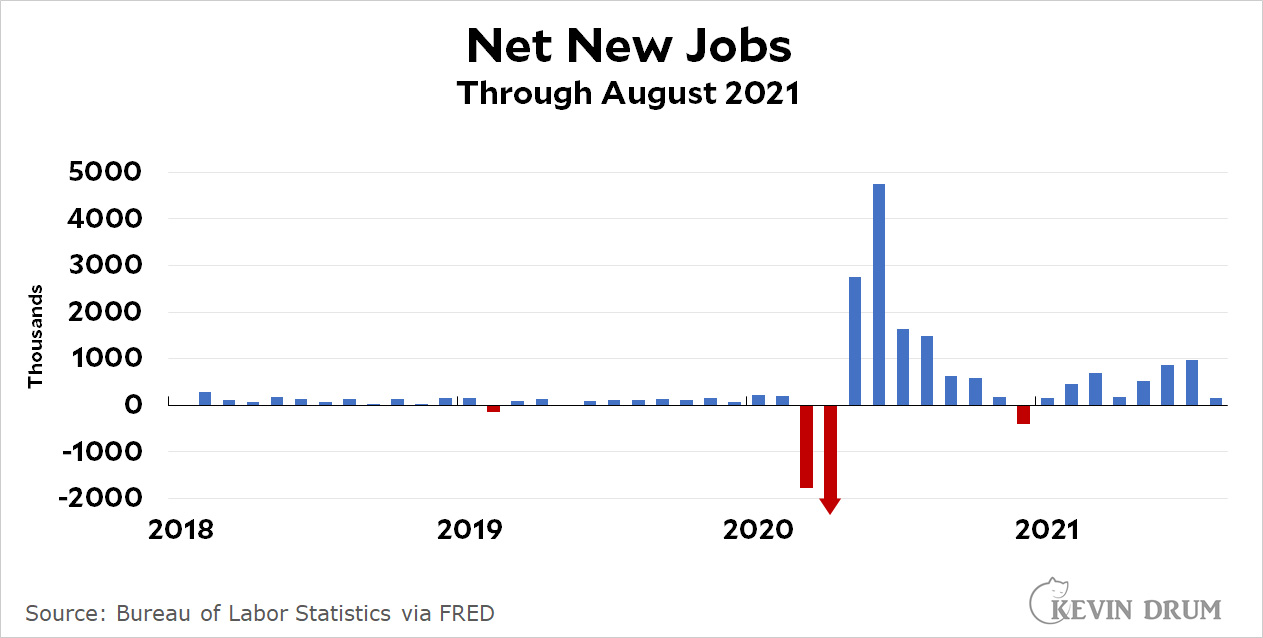The state of Texas has passed a law that, in practical terms, outlaws abortion, and the Supreme Court has so far not responded to a request to block it. This makes Texas yet another state where it's either impossible or nearly impossible to procure an abortion.
There's nothing unexpected about this. Ever since last year, when Republicans got a 6-3 majority on the Supreme Court, abortion activists have been eager to find test cases that will give the Court an excuse to overturn Roe v. Wade. Maybe it will be the Texas law or maybe it will be some other abortion law. But sometime in the next year or two this is going to happen, and there's every reason to think that Roe will then be either completely or largely overturned. At that point, every state will have the authority to pass its own abortion laws, including ones that outright ban abortion.
This prompts me to propose something that's been niggling away at me for a long time. It might be completely stupid, but here it is.
Even if Roe is overturned, there will still be states in which abortion is fully legal. For the sake of conversation, let's pick California, Illinois, and New York as our examples.
So here's my idea. Someone rich sets up an organization, probably in partnership with Planned Parenthood, that arranges for abortions in any state where it's illegal. Basically, you call an 800 number and arrange a date. Maybe there's phone counseling required too. On the date, a car comes to your house and drives you to the nearest airport. You get on a plane to the closest state with liberal abortion laws, where a car is waiting for you when you land. You head off to the clinic and get your abortion. Then a car takes you back and you're home by nightfall. All of this is free of charge—or perhaps on a sliding scale depending on income.
My super rough horseback guess is that this would cost a billion dollars a year. Maybe two or three. This is really not much for a Bezos/Gates/Zuckerberg class of zillionaire for whom reproductive rights are something of a crusade.
I know that I'm being cavalier about a billion dollars, but honestly, I'd be willing to vote for an initiative in California that would fund something like this entirely out of taxpayer pockets and make California the abortion capital of the country.
Is there something I'm missing here? There's a whole lot of us, billionaires and thousandaires alike, who would be willing to fund something like this. Would there be something illegal about soliciting across state lines? Am I miscalculating the cost by a factor of a hundred? Is there some other obvious thing I'm overlooking?
None of this is meant to minimize the preferred solution of simply keeping Roe alive across the country. But given the fact that this might not be possible, is there anything wrong with making plans for what to do if and when it falls? If we can truly guarantee reproductive rights for a few billion dollars a year, surely that's not a very high price to pay?






